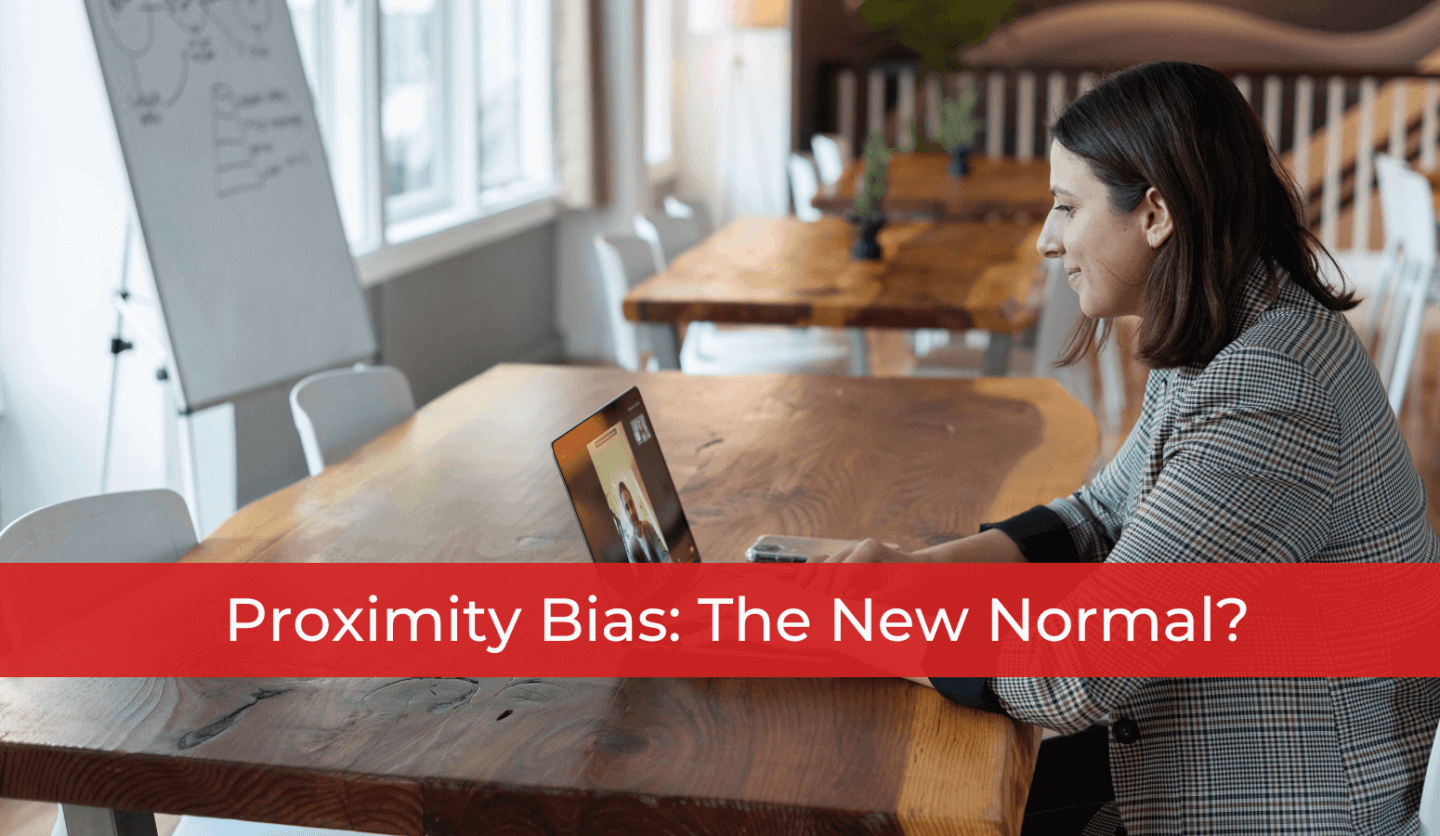
Proximity Bias: The New Normal?
What is Proximity Bias and How Does it Affect the Hybrid Workplace?
As the hybrid workplace becomes the new normal, unique concerns continue to present themselves. Once such concern is “proximity bias”, a phenomenon whereby managers forget about remote employees and/or favour employees who show up to the office more regularly. It appears that those we experience physical closeness with are more likely to curry our favour.
How Does Proximity Bias Amplify Discrimination in the Workplace?
This phenomenon is backed up with evidence too. The Society for Human Resource Management found that two-thirds of supervisors overseeing remote workers believed remote workers are more easily replaced than onsite workers, and 40% said they could forget about remote workers when assigning work. However, they also found that remote workers are on average 15% more productive than their onsite counterparts, but they are less likely to be promoted.
In many cases, this piles onto existing discrimination against marginalized groups (i.e. women, people of colour, differently abled individuals, etc.). These folks are more likely to face discrimination and microaggressions at the office, and so are usually more likely to take advantage of or seek out hybrid and remote work options.
Virtual Meetings vs. In-Person Interactions: Finding the Balance in the Hybrid Workplace?
There are numerous ways proximity bias can be avoided, or at least mitigated, in the hybrid workplace. Managers can book regular one-on-one meetings, so that they have space in their calendars to meaningfully connect with all their reports. Many organizations continue to hold meetings virtually, as all those needing to be present for a meeting are likely not all in the office at one time. This may be frustrating for those who feel they go into the office only to be in virtual meetings all day, but it can still be a meaningful way to level the playing field. Organizing monthly meetings in person can also be a good idea, so that everyone on a team has a chance to meaningfully interact with one another away from the screens.
Many organizations are starting to implement any or all of the above, but we are still a long way from establishing equality in the 21st century workplace.
Seeking Legal Guidance: Addressing Workplace Discrimination in the Hybrid Environment.
If you or someone you know feels that they are experiencing discrimination in the hybrid workplace, it is important to speak with an experienced employment lawyer to understand your workplace rights. The experienced employment lawyers at Whitten & Lublin are happy to provide insight and advice into your specific circumstances. If you are looking for employment lawyers and would like more information about what Whitten & Lublin can do for you, please contact us online or by phone at (416) 640-2667.
Author – Carson Healey



